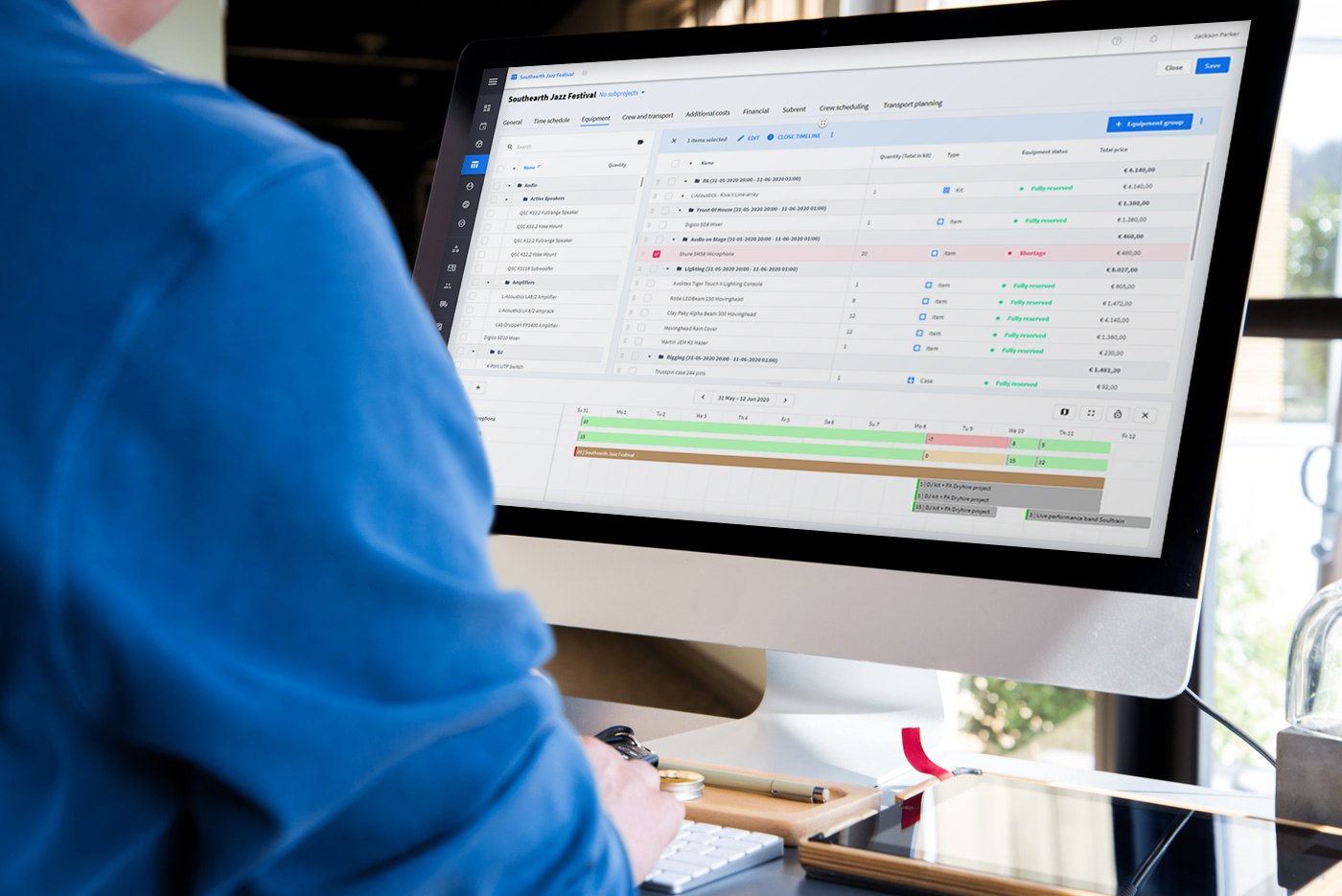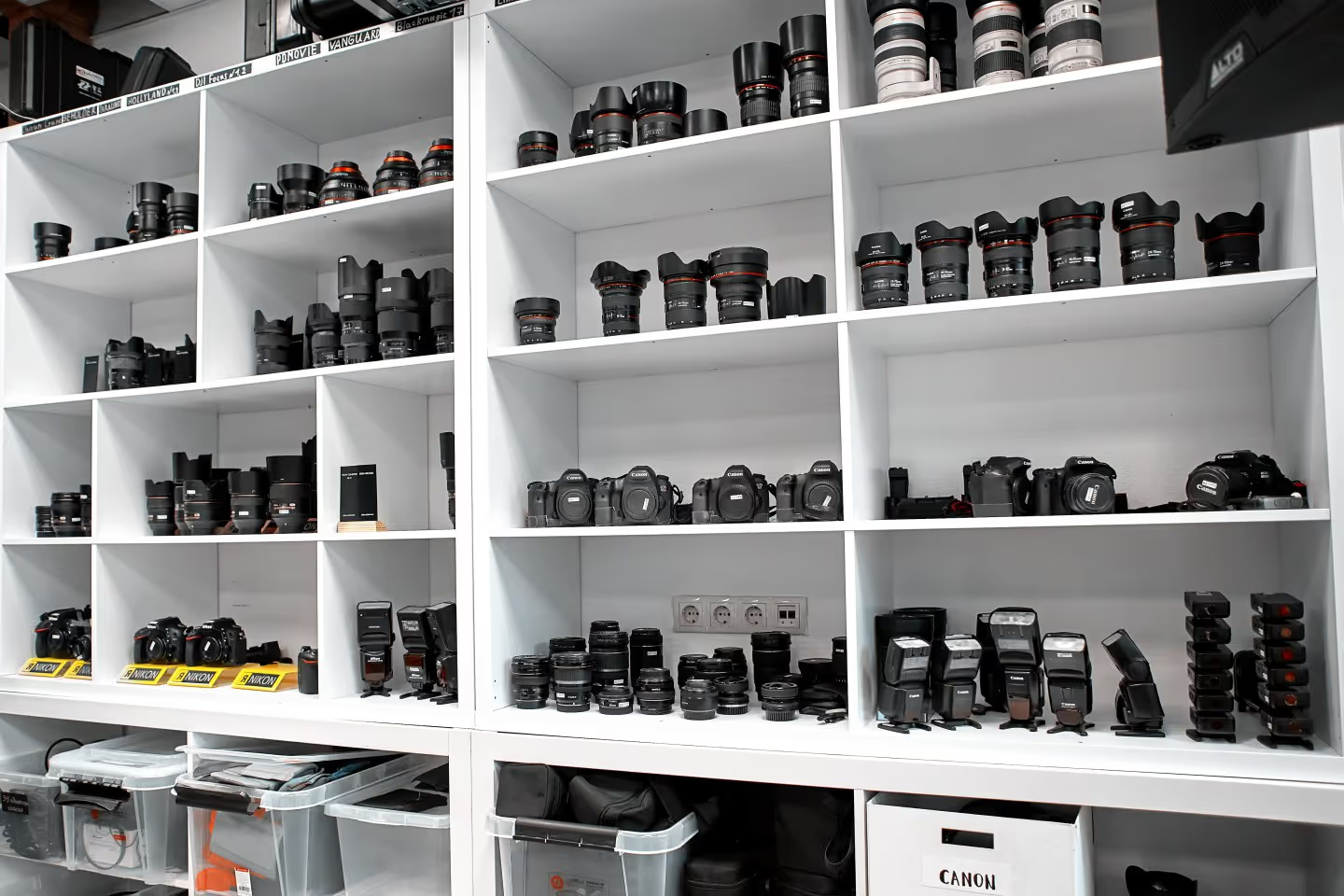Discover the Best Event Rental Software for Your Business

Navigating the world of event planning can be a complex and challenging task, and finding the best event rental software for your business can make all the difference. With technology evolving rapidly, event rental software has become an essential tool for streamlining operations, managing inventory, and enhancing customer experiences. The right software can not only simplify your processes but also increase efficiency, revenue and profitability.
In this guide, we will delve into the features and benefits of the best event rental software available, helping you make an informed decision to elevate your events and business to new heights.
1. Understanding Event Rental Software
2. Choosing the Right Software
3. Future Trends in Event Rental Software
Understanding Event Rental Software
What Is Event Rental Software?
Event rental software is a specialized tool designed to assist businesses in the event industry with managing their rental operations efficiently. This software aids in organizing various aspects of event planning, including inventory management, scheduling, customer relationship management, and billing.
By consolidating these functions into a single platform, businesses can streamline their processes, reduce manual errors, and save valuable time. Typically, event rental software offers features such as real-time inventory tracking, online booking systems, and automated invoicing. These capabilities help businesses enhance customer service by providing accurate availability and pricing information promptly.
Furthermore, the software often includes analytics tools that offer insights into business performance, aiding in strategic decision-making. By integrating event rental management software into their operations, companies can improve their efficiency and focus more on delivering memorable experiences for their clients.
Key Features to Look For
When choosing the best event rental software for your business, certain features are essential to ensure smooth operations. First, look for comprehensive inventory management capabilities. This includes real-time tracking, availability alerts, and easy categorization to manage your assets effectively. Second, an integrated booking system is crucial.
It should allow clients to view availability, make reservations, make payments, and receive confirmations seamlessly. Third, consider software that provides robust customer relationship management (CRM) tools. These should include customer profiles, communication logs, and the ability to segment audiences for targeted marketing.
Additionally, automated billing and invoicing features can greatly reduce administrative burdens and improve cash flow management. Reporting and analytics are also vital, offering insights into inventory usage, client trends, and financial performance. Lastly, ensure the software supports mobile access, enabling you to manage your event rental business from anywhere. Selecting software with these features will enhance operational efficiency and customer satisfaction.
Benefits for Your Business
Implementing event rental software can offer numerous advantages for your business. Primarily, it enhances efficiency by automating routine tasks such as inventory management, booking, and invoicing. This automation decreases manual errors and frees up valuable time for staff to focus on more strategic activities.
Additionally, the software improves customer service by providing quick and accurate information regarding availability and pricing, resulting in faster response times and increased customer satisfaction. The integration of the event rental companies with CRM tools also allows for better management of client relationships, fostering loyalty and repeat business.
Moreover, the analytics and reporting features provide critical insights into business operations, helping identify trends and areas for improvement. These insights can guide more informed decision-making, ultimately leading to increased profitability. Lastly, the scalability of event rental software ensures that it can grow with your business, accommodating an expanding inventory and a larger customer base without compromising performance.
Choosing the Right Software
Assessing Your Business Needs
Before selecting event rental software, it's crucial to assess your business needs thoroughly. Start by identifying the core functions you require, such as inventory management software, booking systems, and customer relationship management. Consider the size of your inventory and the complexity of your operations, as this will influence the type of features you need. Determine your budget constraints and evaluate how much you are willing to invest in software that will support your growth.
Additionally, think about the scalability of the software—will it be able to grow with your business? Assess any specific industry requirements you might have, such as integration with other tools or compliance with local regulations. Gathering input from your team can also provide valuable insights into what features and functionalities are most important for daily operations. By understanding your unique business needs, you can choose software that aligns with your goals and enhances your operational efficiency.
Customization and Scalability
Customization and scalability are key considerations when choosing event rental software. Your business has unique needs that off-the-shelf software may not fully address. Therefore, selecting a platform that offers customization options is crucial. This may include customizable templates, adjustable workflows, and the ability to integrate with other tools you use. Such flexibility ensures that the software can adapt to your company and specific processes, enhancing efficiency and user satisfaction.
Scalability is equally important, particularly for growing businesses. As your inventory, sales, and customer base expand, your software should seamlessly accommodate increased demand without compromising performance. Evaluate how easily the software can scale in terms of adding new users and customers, expanding inventory management capabilities, and managing more complex logistics. It's also wise to consider whether the software provider offers different pricing plans or modules that you can upgrade to as your needs evolve.
By focusing on customization and scalability, you ensure your software investment supports both current and future business objectives.
Integration with Existing Systems
Integration with existing systems is a vital factor when selecting event rental software. A seamless integration ensures that your business operations are not disrupted and your data flow remains consistent.
First, evaluate your current software ecosystem, including accounting tools, CRM platforms, and e-commerce solutions. The event rental software you choose should be compatible with these systems, allowing for data synchronization and reducing the need for manual data entry.
This interoperability helps maintain a unified workflow, enabling your team to access and manage information efficiently. It's also beneficial if the party rental businesses also support APIs, which can facilitate custom integrations tailored to your unique requirements. Consider how the integration might affect your current processes and whether any adjustments will be needed.
Additionally, check if the equipment rental software provider offers support during the integration process to ensure a smooth transition. By focusing on integration capabilities, you can enhance operational efficiency and avoid potential disruptions.
Future Trends in Event Rental Software
Innovations to Watch
As technology advances, several innovations are poised to shape the future of event rental systems. Artificial intelligence (AI) and machine learning are becoming integral in optimizing inventory management, predicting demand, and providing personalized customer experiences. These technologies can automate routine tasks, freeing up time for more strategic activities. The integration of Internet of Things (IoT) devices is another trend to watch, as it enables real-time tracking of equipment and assets, reducing losses and improving operational efficiency for equipment businesses.
Additionally, augmented reality (AR) and virtual reality (VR) are starting to play a role in event planning, offering immersive experiences for clients to visualize setups or layouts. Blockchain technology is also emerging as a promising tool for secure transactions and transparent contract management. Keeping an eye on these innovations can help the rental businesses stay ahead of the curve, ensuring that their event rental software remains competitive and continues to offer value in a rapidly evolving industry.
Impact on the Industry
The future trends in event rental software are set to significantly impact the industry, driving efficiency and enhancing customer experiences. As AI and machine learning become more integrated, businesses can expect improved accuracy in demand forecasting and inventory management, leading to optimized resource allocation and reduced operational costs.
IoT's real-time tracking capabilities will offer unparalleled asset management, minimizing losses and ensuring timely equipment availability. AR and VR will transform client interactions with rentals by providing virtual walkthroughs and setups, allowing for more engaging and convincing presentations. Blockchain's potential in secure transactions and contract verifications could revolutionize how agreements and contracts are managed, enhancing trust and transparency between businesses and clients.
Collectively, these innovations promise to reshape the industry by fostering a more data-driven and customer-centric approach, enabling businesses to offer more tailored and efficient services. Staying informed and adaptable in these areas will be key for companies looking to maintain a competitive edge in the evolving market landscape.
Preparing for Future Changes
Preparing for future changes in event rental software involves proactive planning and adaptability. Start by staying informed about emerging technologies and trends that could impact the rental industry itself. This knowledge will enable you to anticipate shifts and adjust your strategies accordingly. Invest in continuous learning and development for your team, ensuring they are equipped with the skills needed to leverage new tools effectively.
Evaluate your current systems for flexibility and scalability to accommodate future innovations without significant disruptions. Engage with your software provider regularly to stay updated on new features or integrations that could benefit your operations. Establish a culture of innovation within your organization, encouraging open-mindedness and experimentation with new technologies.
Additionally, maintaining a strong network with industry peers can provide valuable insights and shared experiences in navigating changes. By adopting a forward-thinking approach, your show rental business can remain agile and responsive, ready to seize opportunities and thrive amidst evolving trends in event rental software.
Frequently asked questions
Previous blog posts

Understanding Equipment Rental Agreement Terms and Conditions: A Practical Guide
Understanding Equipment Rental Agreement Terms and Conditions: A Practical Guide

Unlock Efficiency: How Cloud Based Rental Software Transforms the Event Industry
Unlock Efficiency: How Cloud Based Rental Software Transforms the Event Industry

